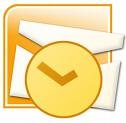Gmail cannot destroy Outlook
This article is in a direct response to an article on Slate subtitled How Gmail destroyed Outlook. Farhad Manjoo has written an article explaining how to use Google Gears to take your Gmail account offline. However he has badly titled it The Best E-Mail Program Ever and subtitled it How Gmail destroyed Outlook.

 If he had just left it titled something like Google Gears provides Gmail with offline capability I wouldnt have minded. But to attempt to use that feature to claim that Gmail is the best program ever or to even more ridiculously claim that Gmail has somehow destroyed Outlook as a result is farcical at best and completely misleading and untrue.
If he had just left it titled something like Google Gears provides Gmail with offline capability I wouldnt have minded. But to attempt to use that feature to claim that Gmail is the best program ever or to even more ridiculously claim that Gmail has somehow destroyed Outlook as a result is farcical at best and completely misleading and untrue.
OK lets look at what he says and why.
First of all to explain some things.
Gmail is actually 2 separate things. It is an email account – that is it provides users with a email address that can be used in any email client using POP3, SMTP and or IMAP protocols to send and receive email. It is also a online email application, using a browser web page to enable access to your email. It has some cool features including conversation threading, search, each email “page” has a permalink. and some more dubious features such as the ability to search through your email and provide targeted advertising based on the content of your email.
Outlook on the other hand is only one thing. It is just an email client. That is, it can be used to provide access to any email account using POP3, SMTP, IMAP and connection with exchange servers.
However the comparisons between them are varied. Some of these are subjective and come down to personal taste. Others are very objective and can not be argued against.
Note – this comparison is between the applications client not the email address.
Brief (non comprehensive comparison between the Outlook and Gmail email applications.
| Feature | Gmail | Outlook |
| Can be used to read your POP3 email online | Yes | Yes |
| Can be used to read your POP3 email offline | Yes – using Google gears a secondary application that needs to be downloaded and installed (except when using Chrome). Even then requires time to download emails – its is not immediate. | Built in |
| Can be used to recieve and send mail from multiple account simultaneously | No | Yes |
| Can connect to exchange email accounts | No | Yes |
| Has built in compatibility with other productivity tools like calendar, Task lists, categorisation and tagging features, reminder services | Limited | Yes |
| Can be used with encryption features to provide secure email | No | Yes |
| Integrates with your desktop search so you can find email and documents about the same subject all in one place | No | Yes (with Vista as an OS) – even better with the Xobni plugin |
| Search attachments | No | Yes (with Vista as an OS) – even better with the Xobni plugin |
| Integrates with Other office applications (Word, Excel, Powerpoint) for sending mail and saving mail (One Note) | No | Yes |
| Can be accessed online away from the desktop | Yes | Limited – Yes with Outlook connector and live accounts |
| Can be shared online an offline with other users | Only if you give them your password | Yes – through delegation rights (requires exchange) |
Ok the last one isn’t really fair, but that’s because of the added benefit of using exchange which most corporate users have and take for granted. Of course that opens up another whole world of email management that Gmail cant possibly replicate or be compared to.
One of the biggest “features” Farhad is using to base his article on here is that Google Gears takes your mail offline. Well yes it does, but, only if you ask it to. It takes time, can be several minutes through to several hours. So unless you know before hand that you are going to be offline line and plan this (e.g. before getting on a plane) even this feature has limited use. I have used the Google Gears application to take my Google reader offline and it takes some time to download all the feeds to the local hard drive. If your internet access is cut due to some other reason, the Gmail client is about as useless as any other internet page.
My comment is posted on the Slate website titled Gmail cant destroy Outlook. The text is below.
This article has an extremely misleading and totally incorrect title. Gmail cannot and has not destroyed outlook. In fact Outlook makes Gmail work well. Any online mail client with a very limited ability to do rudimentary email management will never take over from a desktop client that has so many more powerful abilities. True the Google gears offline application is great. I use it for my Google reader. I do however prefer outlook for RSS feeds and for email where I have to do anything more than just read them. Corporates who have any sensitive information being emailed will never use an application like Gmail to handle their email. Outlook has features tied into Exchange that cannot possible be replicated in Gmail. Applications like XOBNI and Vista search make finding email in Outlook extremely painless and work much better than Gmail's search. This article would have been better titled, how to take your Gmail offline with Google gears - an alternate choice if you do not have Outlook. Running a Gmail account in Outlook is a way better choice for offline email management.
Summary
I would like to point out to Farhad that he has written a quite nice article about how to use Google Gears to take your email offline. He should have titled his article about that.
He has not in anyway shape or form written anything that explains how the lightweight Gmail web client – even combined with Google Gears can in any way compete with Outlook as a email client let alone destroy it!
Rather Outlook can be used to enhance Gmail’s email service by providing a great desktop client to read your Gmail email in.
Other references
Lifehacker has a (rather dated now) comparison between Outlook and Gmail. Most of the features they give the win to Outlook for functionality but to Gmail for usability and simpleness. Most of the reasons for that are tied into the complexity that Outlook offers, and in most cases using the Xobni plugin has directly solved these user interface things.






Comments
Hey Tim, While I agree with
Hey Tim,
While I agree with you in general, there are a few points I'd like to comment on.
As far as reading email offline, Outlook has to download it as well. I've been away for a month and been keeping up to date through Outlook on my laptop. However, it took Outlook on my desktop 4 hours to update everything once I got back. Regardless of what they are designed for, both Gmail and Outlook are prone to this problem. Gmail is marginally worse off though since it has to download the interface as well.
Gmail can be used with encryption if customers choose to go with the premier edition, which I believe is the main competitor to Outlook rather than the standard edition.
Outlook also integrates with the desktop search on XP if you download the plugin for it, it is nowhere near as fast or accurate as the Vista one though - and I won't even comment about how much faster Spotlight on OS X is ;)
Gmail does integrate with other office applications. However, they are Google's suite of office applications. So putting a No against it is a bit unfair. Afterall, Apple's Mail also integrates with iWork. Each of these company's have their own suite of applications. It would be ideal if they would all integrate with each other, but unfortunately the closest to it is Sun's OpenOffice 3 and it is less than perfect.
Outlook (through Exchange) when accessed in Internet Explorer offers an almost identical interface to Outlook itself with almost identical functionality. Through other browsers it is reduced though.
Gmail does offer some sharing with the premier edition, but not to the extent of Outlook.
Now that I'm done on those things, I'd just like to add some other observations of mine.
I offer an Exchange service to my clients if they want to go with it over the standard POP3 that comes with their hosting, however, I've had a number ask if it is possible to use Gmail instead of either of those options and have even suggested that they would prefer to use an @gmail.com email address so that they could use Gmail.
So rather than using an @gmail.com address, I've set them up with a custom Gmail account that uses their domain name.
These have all been small businesses that have requested this. It seems to me that for most businesses that only have a few employees or partners, that the functionality offered by Gmail is more than enough for what they need, and in some cases is better than the service of Outlook because it allows them access anywhere without reducing the functionality that they are used to.
Granted, I'd pick an Exchange server over Gmail, but I actually utilise a lot of functionality that isn't available with Gmail that many general users don't.
Both serve a purpose, Gmail certainly isn't an Outlook killer, but it is a viable competitor in the small business sector and as a number of education departments seem to be picking it up, in the education sector too.
nice well thought comment
nice well thought comment thanks Matt as usual
I think I'd agree with you on all points - though i would draw the specific distinction between the interactivity with Office. MS Office is the main and largely only office suite that most business and home users use. Thus inter-connection with other suites is not really relevant for most users. Yes I now there are web people who live online, but these are the exception not the norm right now.
The same applies to the browser questions.
The reason that IE6 refuses to die and is still has a reasonably large (20% odd) user base still is that these are largely corporate clients who have not upgraded due to internal application incompatibility with the newer versions. I have corporate clients who cannot upgrade because their in house bespoke Java and other applications will not run in IE7.
So while I agree that there are alternatives and that Gmail has a viable use in certain circumstances, these are still the exception rather than the rule in business. In private use though as you pointed out they both have limitations, but clearly Outlook is the better application. However it is also not free. (I have not reviewed the paid versions of Gmail so cannot comment on these with any authority - thanks for your comments)
I think you realised as did I that the original article was just poorly titled.